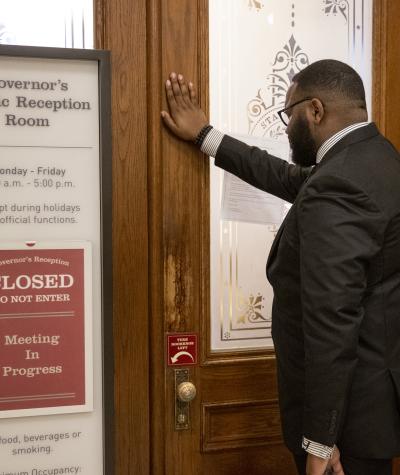Black and Latino voters in Galveston County, Texas — the birthplace of Juneteenth — have long been denied a voice in county government, an unjust reality that perpetuates centuries of discrimination.
June 19, also known as Juneteenth, commemorates the ending of slavery in the United States. Designated a federal holiday in 2021, Juneteenth serves as a reminder of the work advocates across the country have done to ensure equality in the U.S. — and as a reminder of the barriers that Black Americans still face.
2025 marks the 160th anniversary of Juneteenth — and voters are still fighting for equality in Galveston all these years later.
Campaign Legal Center’s Work in Galveston
In October 2023, Campaign Legal Center and our partners won an important victory on behalf of Galveston voters: A federal judge ruled that Galveston County’s redistricting map, which denied Galveston’s Black and Latino voters the equal opportunity to elect a candidate of their choice, violated Section 2 of the federal Voting Rights Act (VRA).
In an unprecedented and unfair twist, the U.S. Court of Appeals for the Fifth Circuit, which oversees Louisiana, Mississippi, and Texas and is only a step below the Supreme Court, allowed the illegal county voting map — one that the federal judge deemed “mean-spirited” and “egregious” in his October 2023 ruling striking down the map — to remain in place for the 2024 election while it was being appealed.
This map did not allow Black and Latino voters, who comprise nearly half of the county’s population, to elect a representative of their choice in any of the county’s four districts.
In other words, Galveston County’s Black and Latino voters were forced to vote, once again, under an illegal, discriminatory map that silences their voices.
160 years after Juneteenth, when over 250,000 enslaved people in Texas were informed of their freedom by the Union Army, Black and Latino voters in Galveston are still fighting for an equal voice in our democracy.
In May 2024, the entire Fifth Circuit heard oral arguments in the case, and disappointingly ruled that Black and Latino voters could not sue as a coalition district.
Coalition districts ensure that voters from different marginalized groups who live in the same area, have similar interests, face a shared history of past and present-day discrimination, and form a majority within the district can still elect candidates who best serve their communities.
When voters of color in a coalition district sue for fair representation under the Voting Rights Act — as Black and Latino voters did in Galveston — this is called a “coalition claim.” These claims were consistently upheld as fair game by the Fifth Circuit for forty years before the Fifth Circuit decided to overturn itself.
However, this latest ruling guts a key component of the VRA by refusing to let groups bring forth coalition claims.
What’s Next?
Now, Campaign Legal Center awaits a ruling from the district court in Texas to determine whether or not the current map is a result of intentional discrimination.
This much is clear: After centuries of discrimination and decades of documented racial discrimination in voting, Galveston County’s Black and Latino voters deserve an opportunity to make their voices heard in county government.

